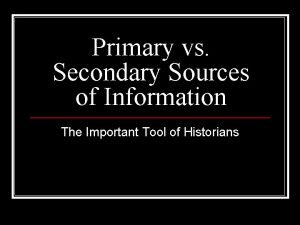Why dont policymakers listen to my evidence and












- Slides: 12

Why don’t policymakers listen to my evidence, and how should I respond? Paul Cairney, Professor of Politics and Public Policy p. a. cairney@stir. ac. uk @Cairneypaul https: //paulcairney. wordpress. com/

Initial context: 3 reasons why policymakers ‘ignore’ evidence 1. The ‘good evidence’ problem 2. The ‘information processing’ problem 3. The complexity problem

We can visualise these processes in many ways:


Simple/ general advice: Find out where the action is Learn the rules Learn the language Build trust and alliances Exploit conditions or events

Tell good stories (Narrative Policy Framework) Be an entrepreneur, and exploit windows of opportunity (Multiple Streams Analysis)

Romanticise, demonise, or be a broker (Advocacy Coalition Framework)

Frame issues to (1) increase attention (2) limit participation (Punctuated equilibrium theory)

Social construction and policy design (SCPD): Exploit stereotypes cherry-pick evidence reward and punish (or depolitise) skew citizenship

Sensible sounding advice … • Find ethical ways to exploit the psychology of choice • Tell a story, since evidence will not speak for itself • Get attention for your issue at the expense of others • Be flexible, since a successful framing strategy in one venue may fail in another • Form coalitions and provide evidence to empower your allies (i. e. don’t expect everyone to use it) • Learn from entrepreneurs: produce a feasible solution, exploit the right time to sell it

…. but what did I miss out? • Environments trump entrepreneurs • The opportunities and rewards are not shared equally • There may be few incentives to develop the skills • ‘few entrepreneurs succeed, and relative success results more from societal structures and the policymaking environment than simply from skilful entrepreneurship’ (Cairney and Oliver PSR).

THANK YOU Paul Cairney, Professor of Politics and Public Policy p. a. cairney@stir. ac. uk @Cairneypaul https: //paulcairney. wordpress. com/
 Dont ask
Dont ask Dont ask dont tell political cartoon
Dont ask dont tell political cartoon Dont laugh at me dont call me names
Dont laugh at me dont call me names Pictures
Pictures Listen to the pouring rain listen to it pour
Listen to the pouring rain listen to it pour Why dont water and oil mix
Why dont water and oil mix How does the cockle avoid the moon snail?
How does the cockle avoid the moon snail? Class evidence can have probative value
Class evidence can have probative value What is a primary source
What is a primary source Primary evidence vs secondary evidence
Primary evidence vs secondary evidence Secondary sources
Secondary sources Primary evidence vs secondary evidence
Primary evidence vs secondary evidence Jobs vancouver
Jobs vancouver























